The Rembrandt Project
Seeks to remove barriers to mental healthcare access by providing funding for art and play therapies
The barriers to mental healthcare access are significant issues facing many Americans. More than half of adults with mental illness in the U.S. do not receive mental healthcare treatment. That statistic alone is cause for concern. But mental health issues are far more common than most people realize. According to the U.S. Department of Health and Human Services, 1 in 5 American adults have experienced a mental health issue, and 1 in 25 Americans live with a serious mental illness, such as schizophrenia, bipolar disorder, or major depression.
That’s why news like Oklahoma’s 2016 cuts to the Department of Mental Health and Substance Abuse Services budget raised deep concerns for mental healthcare advocates, clinicians and patients. Barriers to mental healthcare access come with a high human cost: as one medical journalist explains, “The mentally ill who have nowhere to go and find little sympathy from those around them often land hard in emergency rooms, county jails and city streets. The lucky ones find homes with family. The unlucky ones show up in the morgue.”
Making sure that individuals have access to mental healthcare can improve lives and communities. For many, it can dramatically reduce or eliminate the risk of suicide, legal issues, family conflict, employment issues, substance abuse, and further mental and physical health problems. In order to increase the use of mental healthcare services, we first have to understand what prevents people from accessing them in the first place.
FINANCIAL
Even after the Affordable Care Act required medical insurers to provide coverage for behavioral and mental healthcare, the cost of treatment often limits access to mental health services. For many individuals, a lack of financial resources prevents them from seeking help at all. For others, a lack of financial resources can lead to inconsistent or inadequate treatment.
Even with insurance or financial assistance, mental healthcare services can be costly. Copays and deductibles add up quickly when a diagnosis requires regular therapy, complicated medication management or intensive treatment programs.
Lack of Mental Health Professionals
While the US is facing an overall shortage of doctors, the shortage of mental health professionals is steeper than any other category. According to the Health Resources and Services Administration, 89.3 million Americans live in federally-designated Mental Health Professional Shortage Areas (in contrast, only 55.3 million Americans live in similarly-designated primary-care shortage areas, and 44.6 million live in dental health shortage areas).
This overall shortage of healthcare providers is compounded by other factors. Rural areas often have few to no mental healthcare providers at all, let alone providers with specialties. Urban clinics and providers often have long waiting lists, and patients can suffer for months before they get a basic intake appointment.
To make matters worse, inadequate reimbursement from government and private insurance plans means fewer doctors are choosing mental health specialties in school, and some private clinicians are only accepting new patients who can pay out-of-pocket.
Those factors can make it very hard for someone to find affordable mental healthcare close enough to their home or work to get reliable and consistent treatment.
Mental Health Education and Awareness
Physical injuries and illnesses are typically obvious. They don’t feel well, something hurts or some clinical test shows an abnormality. Mental illnesses, however, are often hard to recognize.
Often, symptoms are subtle and might be dismissed as “personality” or “attitude” issues. Clinical anxiety may be dismissed as “worrying too much,” depression can often look like “laziness” or fatigue. Even serious conditions may not be obvious to the person suffering or those around them if they don’t share their inner thoughts and feelings. Other times, people assume that their emotional or mental status is normal, not realizing that they are suffering from disordered thinking or clinical symptoms.
If a person doesn’t know something is wrong, it’s unlikely they will seek treatment.
Social Stigma of Mental Health Conditions
Multiple studies have found that the stigma associated with mental illness often prevents people from accessing treatment.
At one end of the spectrum, their own beliefs about mental illness can prevent them from acknowledging their illness or sticking with treatment.
On the other end, the very real risk of facing discrimination in social and professional circles creates a huge barrier. People may fear that family and friends will avoid them or treat them negatively. They may also be concerned that the disclosure of a mental health condition can lead to negative treatment and perceptions at work.
Racial Barriers to Mental Healthcare Access
There are significant disparities in mental healthcare access among different racial and ethnic groups. A recent study looked at how the Affordable Care Act has impacted mental healthcare access. The study found that white people are the only racial group in which a majority of people with severe psychological distress get treatment. More than half of people facing severe mental illness who are Black, Hispanic or Asian don’t get treatment.
Jeanne Miranda, a professor of psychiatry and biobehavioral sciences at UCLA explains, “Minorities are often more likely to be poor, less likely to be treated by doctors of their same race and, in many cases, less likely to know they have a condition that requires professional care.”
Studies also suggest that doctors sometimes discriminate, declining to accept minority patients more often. At the same time, people are less likely to seek help if they think their doctor can’t understand or empathize with their background or cultural differences and experiences.
At the rembrandt project, we are committed to providing funding for art and play therapies for ALL people in need — even for those who cannot afford the full cost of counseling.
This commitment to “availability” of our services is based on our understanding of the Biblical parable of the Good Samaritan
(see The Gospel of Luke, Chapter 10, verses 25-37) who not only offered help to the person in crisis, but who also paid for his care when he could not afford it.
The Rembrandt Project exists to serve this purpose! Clients who fill out an application and provide proof of income can receive a significantly reduced out-of-pocket co-payment. The balance of their fee is subsidized by The Rembrandt Project’s Assistance Fund–insuring that both the therapist and client continue to operate on a sound financial base.
How do I apply for the The Rembrandt Project?
First Aid 4 Mental Health’s Client Assistance Fund application is available for download through this link. Contact Beauty for Ashes Counseling at (864) 501-3633 to schedule an appointment and bring your application with you.
How can The Rembrandt Project operate like this?
Good question. If it was easy, and didn’t require commitment, everyone would do it! The answer is, “Not without the support of our community and loyal supporters.” Each year the Board of The Rembrandt Project must commit to raising funds for two purposes:
To underwrite The Rembrandt Project’s Client Assistance Fund
To support the overall work of The Rembrandt Project–including underwriting our operations, growth and development.
Does The Rembrandt Project need MY financial support?
There is ALWAYS a gap between the income we receive from client fees and our expenses for rendering each hour of service. We need your help!
How do I contribute?
We welcome one-time contributions. However, The Rembrandt Project’s Client Assistance Fund is helped most by those who choose to make an ongoing contribution on a monthly, quarterly or annual basis. To arrange this contribution, please contact our offices at 864-501-3633. Contributions can be made by cash, check or credit card, or automatic draft.
You can also make a contribution online through a confidential, secure server. Please donate here.


